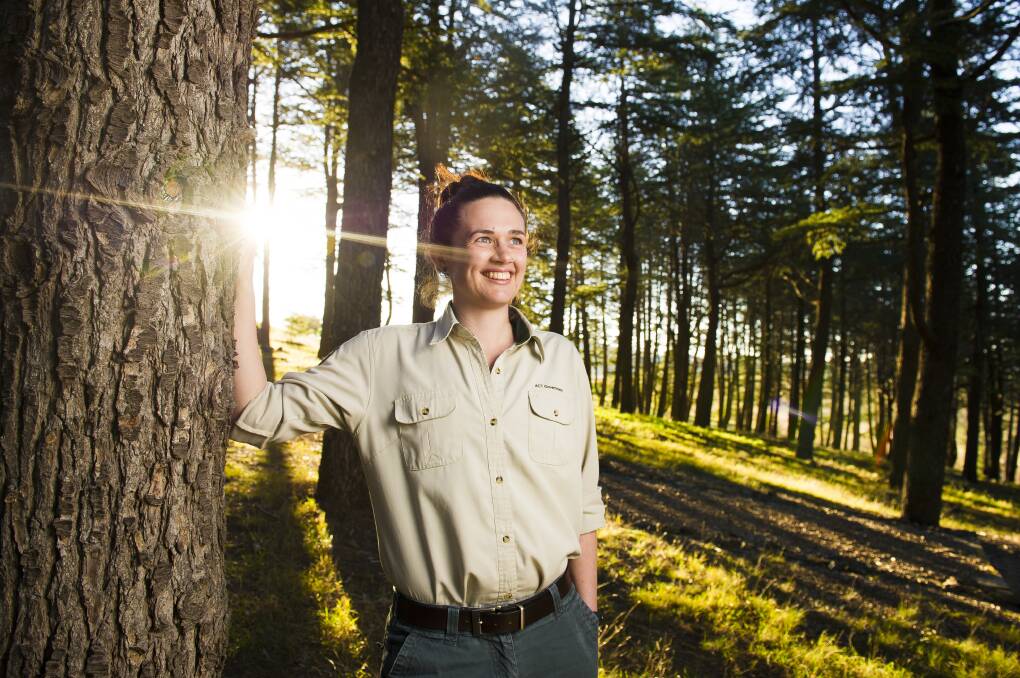Some time next year, your doctor just might order you outdoors to spend time with an ACT park ranger, under a program the government is looking to trial in 2020.
Subscribe now for unlimited access.
or signup to continue reading
"Green scripts" could be a new way to treat heart disease, high blood pressure, obesity and mental health issues, an ACT parliamentary into nature heard on Wednesday.

Environment directorate executive director Ian Walker said green scripts had been a hit in New Zealand and now the ACT government was looking to trial the program here.
It would see health practitioners in Canberra prescribe patients time outdoors with an ACT park ranger.
In the United States, the Golden Gate National Parks Conservancy in San Francisco had been running its similar "Park Rx" program for 10 years.
Tidbinbilla visitor centre manager Heather Gow-Carey said no Canberran lived further than 3.5 kilometres from a nature reserve, national park or pine forest.
"I don't think any other capital city would be able to claim that proximity to nature," Ms Gow-Carey said.
"[It's] essentially a huge benefit to the well being of all Canberrans."
The Australian Medical Association's ACT president Dr Antonio Di Dio said it was an "awesome" idea and much less intrusive on people than time at the gym or with a personal trainer.
"I'd certainly love to refer lots of patients to such a service. Our patients would respond to it really positively too," Dr Di Dio said.
Dr Di Dio said he'd been referring patients outdoors on an ad hoc basis but would like to see it formalised, believing Canberra practitioners would quickly take it up.
He said the exercise didn't just help with obesity or heart disease, the Vitamin D could have great effects on metabolic conditions and the outdoors helped with people's mental health.
While a success across the globe, green scripts or "nature prescriptions" had previously failed to work in Australia, Mr Walker told The Canberra Times on Thursday.
"It's because of the relationships between different government agencies and different health professionals," he said.
"It's often difficult to join different sectors across government."
But he said Canberra's "strong whole-of-government approach" would make it a smoother process.
Mr Walker said the government was aiming to get the concept finalised in the next financial year and implement the trial in 2020.
"We get a win from a health outcome ... but also we get a win from the environment, because we get more people understanding the natural environment and caring for it," Mr Walker said.
"We're going to work with health providers to encourage and get them to 'prescribe' a walk in the park or an activity with a ranger."
"We're working through the next six months to fine tune what practitioners call the dose rate."
Mr Walker said they also would still need to determine how GPs would assess their patients were getting their prescribed "dose".
It would also need to be assessed whether park rangers had the resources.
But Mr Walker said it could return positive health outcomes for Canberrans but also help them create a deeper connection with their natural environment.
"At that very rudimentary level of walking in a park, you have some connection to place, you have some connections, some reason for wanting to keep that area," Mr Walker said.


